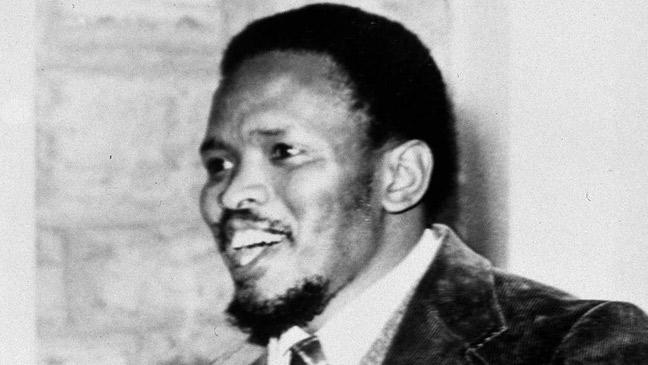by Max Wilbert / Deep Green Resistance
“Deep down, every liberationist is an optimist.” – Steve Biko
Steve Biko was a South African anti-apartheid activist and organizer who was murdered by the secret police in 1978. He was 32 years old when he was tortured and beaten, resulting in his death. “I Write What I Like” is a collection of writing by Biko and includes some commentary.
The collection is defined by radicalism. Biko was a believer in the mantra that freedom cannot be given, only taken. In this idea lies the core of why the liberal solution to South African apartheid remained incomplete, resulting in a highly unequal, racialized capitalist society. This is the difference between “equality” under the law and true liberation.
Biko understood that racism and apartheid were not simply technical problems. “One needs to understand the basics before setting up a remedy,” he writes. “A number of organizations now currently ‘fighting against apartheid’ are working on an oversimplified premise. They have taken a brief look at what is, and have diagnosed the problem incorrectly. They have almost completely forgotten about the side effects and have not even considered the root cause. Hence whatever is improved as a remedy will hardly cure the condition.”
Biko’s philosophy of Black Consciousness was built on undermining both the political structures that upheld apartheid as well as the internalized inferiority and superiority that still characterize race relations in many locations worldwide. He rejected integration for its own sake, recognizing that mainstream integration ideas are “white man’s integration—an integration based on exploitative values. It is an integration in which black will compete with black, using each other as rungs up a step ladder leading them to white values… these are the concepts which the Black Consciousness approach wishes to eradicate from the black man’s [sic] mind before our society is driven to chaos by irresponsible people from Coca-Cola and hamburger cultural backgrounds.”
He aimed to uphold African cultural values as important, writing “The easiness with which Africans communicate with each other is not forced by authority but is inherent in the make-up of African people… this is a manifestation of the interrelationship between man and man [sic] in the black world as opposed to the highly impersonal world in which Whitey lives.”
He understood that oppressive systems maintain their power primarily by the consent of the oppressed, which is gained via coercion, psychological tricks, propaganda, fear, and so on.
This is the reason that Biko was confident in the ability of non-violent aboveground political organizing to liberate South Africa. He was not a pacifist, and spoke in favor of the militant organizations (ANC and the PAC) that operated underground during his most active years.
These organizations had limited effectiveness in that context, but Biko strove to forge multi-generational alliances regardless, recognizing the primacy of shared goals. His approach to other groups was “tough, even aggressive language” tempered “with a basically friendly underlying spirit.”
Biko was a leader, but not an authoritarian. He promoted initiative rather than centralization. This proved to be key when many figures within various resistance movements were banned from participation in public life or sent to prison on the remote Robben Island.
He was a highly effective organizer, as one passage from his friend Aelred Stubbs C.R. makes clear. “Although Steve could hold no office in BPC because of his banning order he was constantly being consulted. It was amazing how much he knew… more than once he warned me not to get too close to certain people, white or black, whose contacts were less than desirable. He was always right. He never spoke against anyone if he could possibly help it. Even when he did, it was always in a particular context… There was this fierce integrity about them all. If you were with them you were in, and everything was given and taken. If in any way you were furthering your own ends, or trying to run with the hare and hunt with the hounds, you were out.”
Biko, like all historical figures, was no saint. His behavior was frequently sexist, and he derided feminism as an irrelevance—not an uncommon attitude at the time (or today), but inexcusable in someone fighting for justice. Like with other historical figures, we can learn from his weaknesses as well as his strength. In 2018, those lessons are still as relevant as ever.

